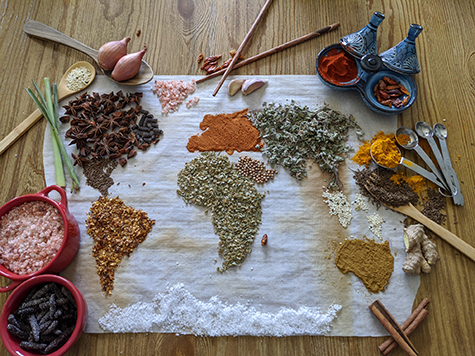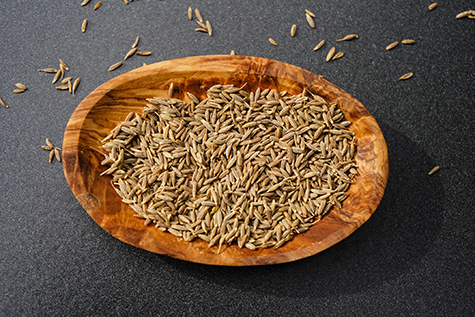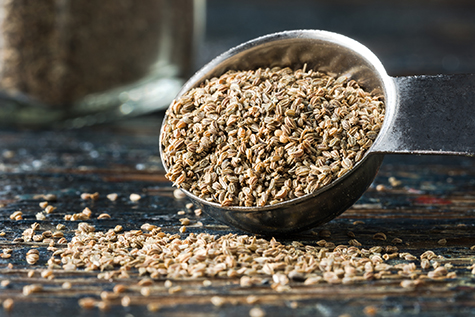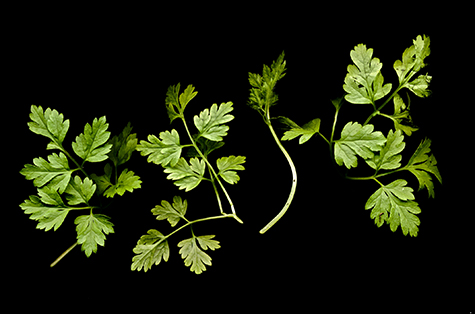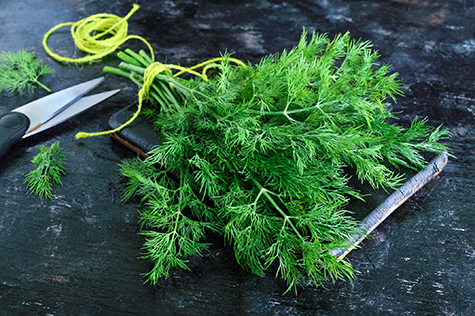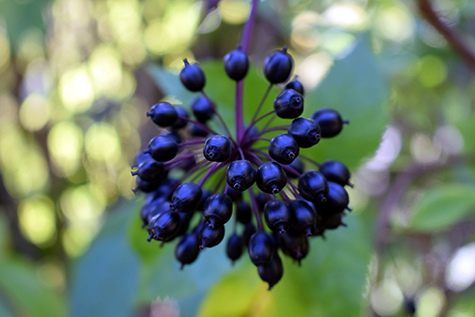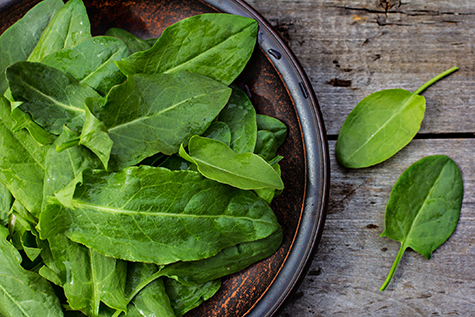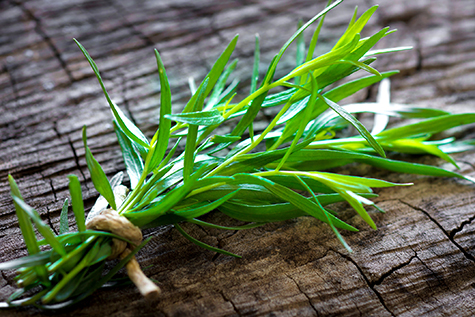Meet the Savory Spices of Russia & Eastern Europe

Over the past year, FoodTrients has been exploring foods and flavors from around the globe. This week, we introduce another in our series on the world of herbs, spices and ingredients that help create some of the distinctive dishes we have featured and the age-defying benefits they deliver.
You’ll find Russian cuisine influencing parts of Eastern Europe, and vice versa, as savory flavors like cabbage, beets, caraway, dill and sorrel migrate as borders have changed and people have moved and spread throughout the area over time. Russian cuisine influence can be seen in Belarus, Ukraine, Poland, and into the Baltic States of Lithuania, Latvia and Estonia.
Caraway Seeds
If you have stomach or digestive troubles, caraway is a great traditional remedy. It’s used for stomach aches, gas, constipation, and even irritable bowel syndrome (IBS). A theme of many herbs and spices in Russian cuisine are foods that taste bitter and/or have an anise flavor. Caraway is both! It has a bittersweet, sharp and peppery anise flavor that’s important in traditional dishes like stewed cabbage, solyanka, fresh cabbage salad similar to coleslaw, or sauerkraut – pickled cabbage.
Celery Seed
Used commonly to help treat menstrual issues or lower blood sugar, there are many traditional uses for celery seeds in Russian cuisine. Another food with slightly bitter flavors (grinding them makes them more bitter than using the whole seeds), celery seeds add an herbal flavor to foods they’re added to. Find them in recipes for soups and dressings as well as in pickled foods in Russian cuisine.
Chervil
Closely related to parsley, chervil has some similar medicinal benefits and is best known for helping to lower blood pressure. However, chervil is more commonly used in Europe and Russia than it is in the US. The flavor is mild and reminiscent of licorice. In Russian and Eastern European cuisine, it’s often found in egg dishes and on potatoes.
Dill
Used in traditional medicine to lower fevers, as a liver and kidney/urinary tonic as well as to help improve sleep, dill is well-known in both Mediterranean as well as traditional Russian cuisine. It’s commonly used in pickled foods (dill pickles!) and pickled herring, as well as added as a garnish and flavoring to soups, sauces, potato salad and in egg dishes.
Siberian Ginseng
Not to be confused with Panax or American ginseng, Siberian ginseng is native to Russia, China, Korea and Japan. It’s used medicinally as an adaptogen, helping the body cope with physical or emotional stress. It also has some culinary uses and is quite high in vitamin C. It’s often drunk as a tea or taken in a tincture, not as much for the flavor but rather for the energy properties it contains.
Sorrel
Used most commonly to treat viral cold symptoms like sinus problems or bronchitis, sorrel is an important herb in traditional dishes. The most common way you’ll find sorrel is in a hot or cold soup. It has a bright, sour flavor that is also sometimes used in egg omelets and salads but the most traditional Russian and Eastern European way of serving it is in soup served with smetana, a type of sour cream.
Tarragon
Similar to the light licorice flavor of chervil, tarragon also brings a note of anise to Russian dishes. You’ll find it used in recipes that are vinegar and/or mustard-flavored as well as in egg and/or cheese dishes like strudel or omelets.
References Jeanroy A. Herbs Commonly Used in Russian Cuisine. https://www.thespruceeats.com/russian-herbs-1762099. Published 9/20/19. Accessed 12/20/20 Natural Medicines Database. Dill. https://naturalmedicines.therapeuticresearch.com/databases/food,-herbs-supplements/professional.aspx?productid=463. Updated 2/25/19. Accessed 12/20/20.
Natural Medicines Database. Siberian Ginseng. https://naturalmedicines.therapeuticresearch.com/databases/food,-herbs-supplements/professional.aspx?productid=985. Updated 8/16/2017. Accessed 12/20/20. Natural Medicines Database. Chervil. https://naturalmedicines.therapeuticresearch.com/databases/food,-herbs-supplements/professional.aspx?productid=250. Updated 3/20/2020. Accessed 12/20/20. Natural Medicines Database. Sorrel. https://naturalmedicines.therapeuticresearch.com/databases/food,-herbs-supplements/professional.aspx?productid=250. Updated 9/30/2020. Accessed 12/20/20. Natural Medicines Database. Celery Seed. https://naturalmedicines.therapeuticresearch.com/databases/food,-herbs-supplements/professional.aspx?productid=882. Updated 7/31/2020. Accessed 12/20/20. Natural Medicines Database. Caraway Seed. https://naturalmedicines.therapeuticresearch.com/databases/food,-herbs-supplements/professional.aspx?productid=882. Updated 8/18/2020. Accessed 12/20/20.
